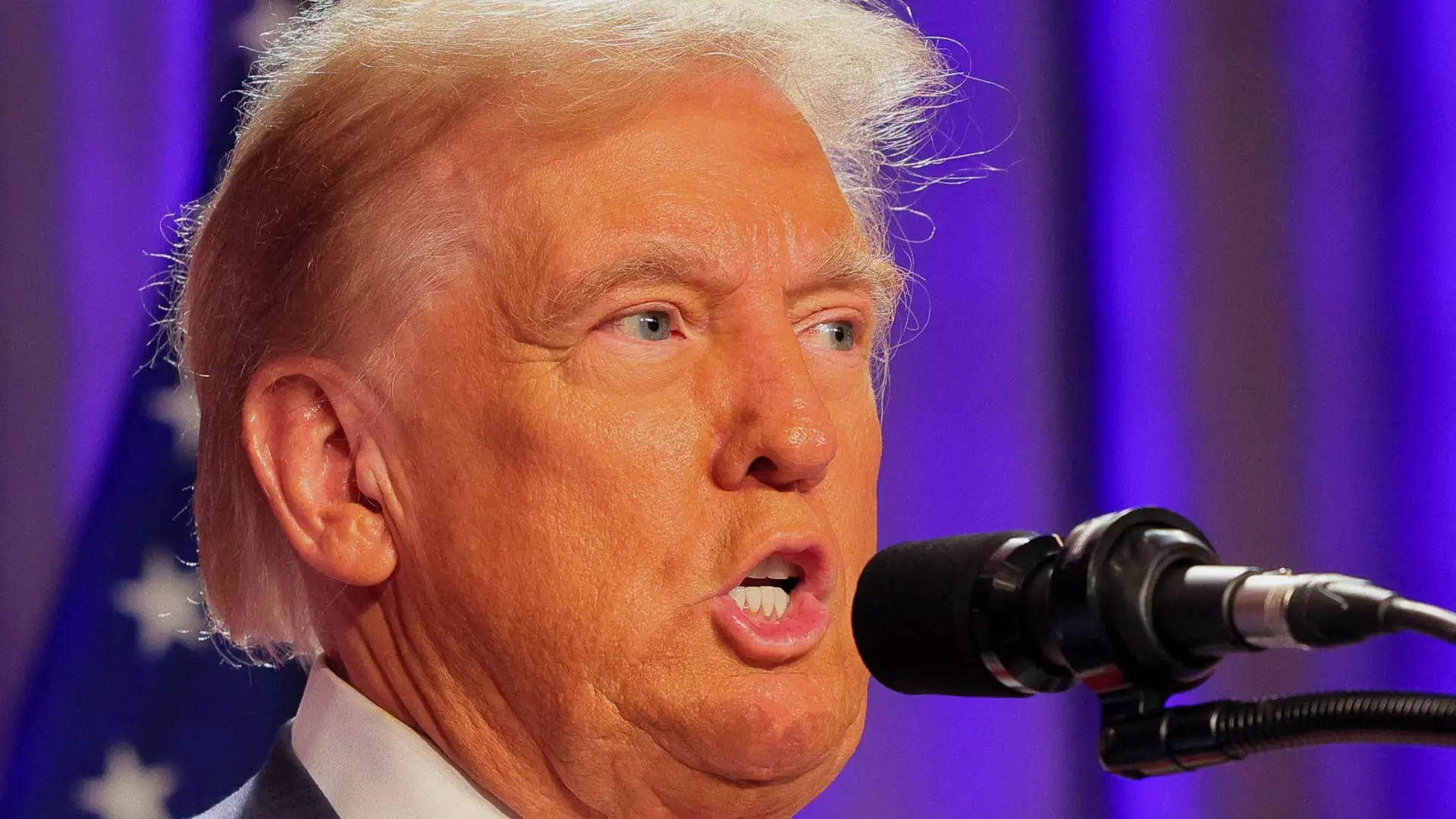As the political landscape continues to evolve, the sentiments surrounding U.S. foreign policy under President-elect Donald Trump raised eyebrows during a recent interview on NBC’s “Meet the Press.” In discussions with correspondent Kristen Welker, Trump painted a picture of potential shifts in America’s military commitments, particularly concerning Ukraine. The tension in Ukraine’s geopolitical situation has been heightened since Russia’s aggression in 2022, and Trump’s comments suggest a reevaluation of the U.S. role in this conflict.
Trump’s assertions that Ukraine may receive diminished military aid when he takes office pitches a controversial stance in comparison to the current administration. As of now, the U.S. has supplied Ukraine with over $62 billion in support over three years. The president-elect’s focus on the disparity between U.S. and European contributions is noteworthy, emphasizing that Europe should match American efforts: “We’re in for $350 billion, and Europe is in for $100 billion.” Such statements indicate a stark demand for collective financial responsibility among NATO allies, suggesting that Trump’s vision of transatlantic relations hinges on equitable contributions to defense efforts.
Trump characterized the current assistance as disproportionate, urging European nations to “equalize” their financial responsibilities. This perspective raises substantial questions about international military commitments and whether U.S. support for Ukraine will shift from a leadership role to a more transactional arrangement.
The president-elect’s remarks insinuate that Ukraine’s situation might be akin to a sales transaction, with Ukrainian President Volodymyr Zelenskyy portrayed as a skilled yet opportunistic salesman. Trump expressed admiration for Zelenskyy’s political acumen but seemed to imply that this skill, rather than the perils facing Ukraine, drives U.S. military aid. Such a framing could undermine the genuine humanitarian and protective aspects of military support often cited by foreign policy analysts.
Moreover, Trump’s indication that he would attempt to secure a rapid ceasefire and negotiations could offer hope, albeit it raises skepticism. His confidence in brokering peace hinges on his relationship with Russian President Vladimir Putin. In past communications, Trump has portrayed himself as a unique mediator, claiming he could resolve the conflict swiftly. Still, skepticism prevails regarding the feasibility of such claims—especially given the complex dynamics involved in the Russia-Ukraine conflict.
One of the more contentious issues is Trump’s long-standing demand that NATO allies meet their financial obligations. This insistence is not new; it echoes his views during his previous term. Trump’s perspective underscores a transactional view of alliances, suggesting that U.S. participation in NATO could be conditional on European nations “paying their bills.” This notion threatens to undermine the foundational principles of mutual defense that have previously bound NATO members together since World War II.
Trump’s characterization that “war with Russia is more important for Europe than it is for us” plays into an isolationist narrative. It locates U.S. interests as distanced from direct European threats, credibly challenging the post-World War consensus around shared responsibility in transatlantic security. It is imperative to note how such arguments resonate with a segment of the U.S. population weary of foreign entanglements, advocating for a reassessment of military commitments on the global stage.
Trump’s views permeate broader geopolitical discussions, extending beyond Europe to include China and Russia. His casual manner of addressing these relationships raises eyebrows. For instance, during the interview, he expressed a preference for non-intervention in Taiwan’s potential crisis with China but implied a negotiating stance rather than a decisive defensive one. Such a lukewarm declaration questions U.S. commitments to allies in the Asia-Pacific region and could embolden adversarial behavior.
Furthermore, discussing Russia’s disengagement from Syria, Trump underscored a shift in focus toward Ukraine. His remarks signal a potential realignment of Russian interests, but they also muddy the waters regarding U.S. policy in conflict-ridden areas where humanitarian crises are emerging, like Syria.
Donald Trump’s foreign policy outlook reflects a significant departure from traditional U.S. engagement models. His focus on pivoting responsibilities back to Europe, emphasizing transactional relationships, and reshaping alliances could alter the dynamics of international relations. As these developments unfold, the consequences further complicate America’s standing on the global stage. Whether Trump can effectively navigate this new paradigm remains a critical question for policymakers and international allies alike.

